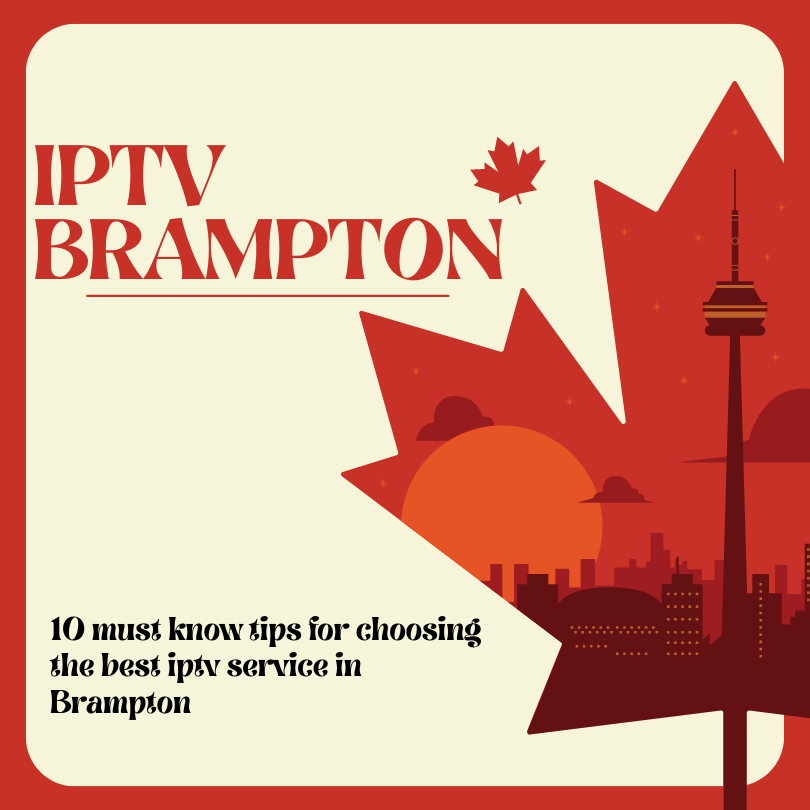
Disclaimer. This information is only for educational purposes. TechyMana.com neither owns nor controls the streaming apps, add-ons, websites, IPTV, or services that are mentioned on the page. To the TechyMana team’s knowledge, none of these services are verified, and we have no reason to believe they are legally permitted to distribute all the content shown. We don’t verify the legality of each app/service in every region, and you really should verify the legality of all the services that you access. We definitely don’t recommend using any unverified services to access content that isn’t in the public domain. If you do, you’ll be the only one who is responsible for what you access.
In the last few years, there has been a massive shift in how we consume entertainment, and one of the most discussed alternatives to cable is Internet Protocol Television, or IPTV. IPTV is fast becoming the over-the-top (OTT) television service of choice-they are even calling it the ‘Brampton Revolution’-in the City of Brampton, Of course, we hear a lot about cord cutting and cord nevering as trends in North America, but with prices dropping and quality on the rise, IPTV will certainly be one of the must have media for entertainment in the not so distant future.
A rapidly growing television technology is Internet Protocol Television, or IPTV. This system lets people take in television programming and other video programming over the Internet. But what it’s not is either net neutrality or a fast lane: It isn’t net-neutrality concerns, the way pop-up ones do when services start delivering programmed content to a lot of people at exactly the same time, akin to the way an over-the-air television broadcast works. Rather, IPTV sends one individual stream to each viewer. And this system mirrors what cable television does. Indeed, a lot of IPTV feels downright familiar; it looks and works like cable television
IPTV provides its user with the same kind of content that you would get in television, but with an advantage of access at will. IPTV blends smoothly into the cloud-based future of television. It is something that is flexible with regards to traditional cable, accessing programs at any time, while services promise to have content that is accessible indefinitely in the past. IPTV may be the future of pay television—it is certainly the future of content delivered through the Internet—yet it remains the most mysterious of the technologies we’ve discussed. Most of its workings happen behind the curtain of a cloud, making it inflexible in the same way that “watch what’s on now” content is inflexible.
Many cable systems cannot compare with the convenience of pausing, rewinding, and recording live television. They come close enough, of course, with their own PVR alternatives, but those aren’t quite as good and, at any rate, are more expensive to the ‘average viewer.’ And what about the content expense? U.S. television households with an average income spend about $126 a month on top of $642 a year for basic service that doesn’t include premium channels. In my hometown of Brampton, Ontario, where City staff can’t use the International Telecommunications Union’s Research & Development cost formula (which figures a ‘basic service’ at around $533,657.23) to get a handle on telecom service pricing, any IPTV service provider can deliver content at near one-third the cost of a ‘basic service’ fibre optics-to-the-home offer from a ‘traditional’ cable service in our fair city.
There are quite a few IPTV providers that have emerged in Brampton, all offering their choice of programming and their set of features that may attract one to them. For example, Xtreme HD IPTV is one of those providers that seems quite popular, at least partly because it offers a gigantic number of channels, and you can view all of those channels in stunning HD. But above that, there are a few who are favorite among people in Brampton.
Likewise, VMedia is the IPTV combined with internet and home phone service, providing well-rounded entertainment and communication for a family. Technology is unrelenting in its advancement. IPTV in Brampton has a lot going on for it. For one, high-speed internet is almost ubiquitous, and the improvements we see in streaming technology are making it more and more likely that just about everyone will soon regard IPTV as the service of choice. Another constant current development is the smart home products themselves and their integration with these platforms, such as Amazon Alexa and Google Assistant, promising the user even more opportunities to amaze their families with marvelous video and superb audio coming from different parts of the house working in harmony.
Still, there are challenges to be addressed. First, is that there must be internet connection availability to all; second, is that there is adequate bandwidth to accommodate every individual who needs to utilize all services he or she wishes, whenever he or she desires it, especially in a city like Brampton, where not everybody receives their internet service providers’ connection. And if IPTV itself evolves into the revolutionarily legal nightmare (something that could easily happen), then all bets are off.
The home entertainment service of choice in Canada, especially in Brampton, seems destined to be IPTV. Its position in the pay-TV market appears unassailable, with an ever-growing array of channels and types of content, provided by an ever-widening number of service providers. Meanwhile, the technology behind IPTV offers possibilities for even more exciting developments in the near future.

